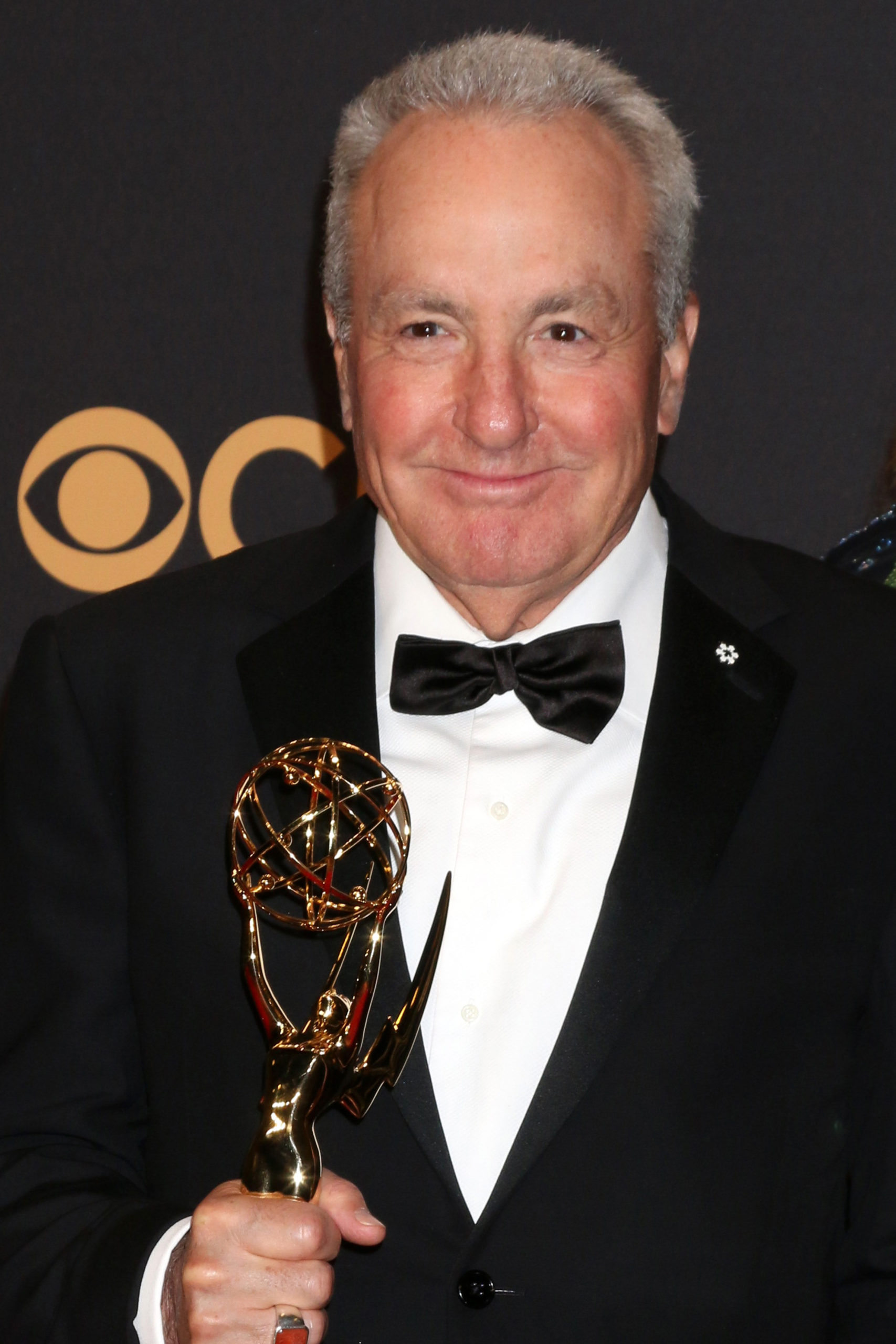
Being the executive producer of “Saturday Night Live” must be a lot like coaching a college basketball team. Few of the players don’t stay around too long, perhaps 4-5 years at the most. The good news is that there’s always a current crop, waiting for their chance at the big time. The talent comes and it goes, occasionally yielding a superstar. But all along the way, the game – the show – goes on.
Lorne Michaels, a guy I’ve highlighted more than a few times in this blog knows the feeling well. At 77 years-old, he’s had his hand on the tiller of “SNL” since its inception back in 1975. By anyone’s standards, it’s been an amazing run – a weekly live show that’s had its finger on the pulse of politics, culture, and humor for 47 years…and is still going strong.
Sort of.
COVID created a tough challenge for this show, and now that the pandemic is easing, several current cast members are yearning to “turn pro” and move their careers along to their own projects – shows, movies, TV series – you name it.
along to their own projects – shows, movies, TV series – you name it.
In the case of “SNL,” eight cast members are flying the coop, looking for the next rung of the showbiz ladder. That means that in many ways, “SNL” will be a different show this Fall…or will it?
The New York Times’ Dave Itzkoff caught up with Michaels last week, and asked him what it was like to be tasked with reinventing this show….yet again. After all, it’s been through many phases and iterations over these decades, having to turn itself inside out on several occasions.
Studying Michaels’ responses to Itzkoff’s questions reads like a classic JacoBLOG – “7 Ways to Reinvent Your Heritage Station” (or personality show). It’s a great primer for PDs who seek quality, and also admire longevity. Lorne Michaels brings both to the table.
Here are those seven lessons as only the showrunner of “SNL” could deliver them:
1. It’s all in how you approach it – Change can be scary, intimidating, and daunting. Or it can be a chance to try new things. As Michaels explains, “This is a year of reinvention. And change is exhilarating.” A good attitude is a prerequisite for a winning show or station.
If Michaels were counseling radio programmers faced with name talent that’s retiring or moving on to a new station, he’d advise them to lean into the change. With new personalities come new opportunities for different content and the chance to reach new audiences. Michaels has seen it work several times over the past half century.
2. History is on your side – By now, “SNL” is like a heritage radio station. It has a loyal audience rooting for its continued success. Over the years, I’ve learned that brands are more resilient than I thought they were when I was a PD.
I’ve been blessed by having the chance to work for number of radio stations that have celebrated the Big 5-0, and continue to lead their markets, KSHE, WRIF, KLOS, KQRS, WMMR among them. These experiences only amp up my admiration for Michaels, who’s spent his entire career programming “SNL.”
Fans of the show over the decades have watched stars, comedians, and icons come and go. It’s part of the package. As Michaels notes, “The price of success is that people go off and do other things; their primary obligation is to their talent to keep pushing that.”
When you’re a show – or a station – that’s become part of people’s lives and their histories, they’re pulling for you. The showrunner’s job is to be true to the brand, understanding what it means to the audience and what they expect when they tune in. In some ways, it becomes easier to discover and hire new talent. You know the culture, the expectations, and what it takes to succeed in the media ecosphere.
3. Always keep it fresh – This has been Michaels’ mantra from day one, and it’s what drew me to him in the first place. Of course, “SNL” has always been about what’s current, what people are talking about – like any great station or personality show should be.
Michaels acknowledges part of the challenge is making the best of the cast he has to work with. But it’s all about keeping an old brand fresh. And Lorne Michaels points out the obvious fear every programmer carries around:
“Things grow stale.”
That’s true no matter how good your ratings are. That’s the battle every radio station and every show faces. And the onus is on the PD/showrunner to keep it vital and buzz-worthy.
 4. Know your mission – I have long believed “the vision thing” is an attribute great PDs must have – especially with corporate PDs, consultants, researchers, and sales managers lurking around. There may be lots of cooks in the kitchen, but there can only be one vision.
4. Know your mission – I have long believed “the vision thing” is an attribute great PDs must have – especially with corporate PDs, consultants, researchers, and sales managers lurking around. There may be lots of cooks in the kitchen, but there can only be one vision.
Going into a rebuilding year – as Michaels is – puts great programmers to the test. What’s the theme? How can you best explain your vision to those you manage – and those who manage you?
For Lorne Michaels, the new direction couldn’t be any clearer:
“What I want it to be is, there’s a reason to watch it live, because you don’t know what we’re going to do.”
That’s an interesting angle for a show that in recent years has thrived with on-demand viewing, especially people watching the chunked-out bit and skits the next day. But Michaels realizes a key attribute of “SNL” show is that it is in real time, it’s LIVE. In a world of SVOD players, he knows what sets his show apart and what’s made it famous. He wants to make the show so fresh and relevant that you want to watch in on Saturday night. That’s a great goal.
And after all, “Live” is in the show’s name.
5. Know what you are – Michaels has always walked the line where someone is offended. Often, it’s been about pissing off everyone at one point or another. Itzkoff asks Michaels whether he adjusts the humor to not offend or to tread carefully.
And Michaels’ response is that ruffled feathers goes with the “SNL” territory:
“That what we do, and that’s why I can’t be everyone’s friend.”
Being unapologetic about the show and the station is born out of a self-awareness of what the show is and what it isn’t. As any great personality shows knows all too well, there are going to be days when the humor doesn’t land the right way. Or an advertiser gets bent out of shape. Or a “friend of the show” takes you to task.
You can’t apologize for what made the station the station, or the show the show.
6. Know your talent – With newcomers joining the cast, Michaels looks forward to them being able to freshen a heritage show. He is well aware they could turn out to be long-term players or they could come and go. He’s had it all – Gilda Radner, Eddie Murphy, Tina Fey. And he’s also had some “Not Ready For Prime Time Players” who fit that description well.
As he notes, “Half of the fun of watching the show is watching people that are beginning and discovering them.”
Michaels is known for having his talents’ back, a quality that has obviously served him well over the nearly five decades he’s held the role of showrunner.
Ultimately, he knows it’s all about the personalities, the cast, the team. You’re only as good as the people on your bench.

7. Know your core – In Michaels’ case, he has the luxury of building around his two quarterbacks, Colin Jost and Michael Che, the familiar duo who anchor “Weekend Update,” the long-running benchmark of “SNL.” There have been some amazing anchors for this bit, including the original Chevy Chase. But Jost and Che are cleanup hitters who Michaels knows will deliver. He just need to pull together the rest of the cast, and this year’s collection of guest hosts.
Reinvention is easier when you’re building around an institution. With the midterm elections right around the corner, Michaels’ points out his core talent is key:
“I just need that part to be as solid as it is.”
One of the most inspiring things about Michaels – to me – is that he has no plans to stop showrunning “SNL.” As he points out,
“I have no plans to retire. I’m not a big person for celebrating.”
Spoken like a true PD.
- In Radio, You Just Never Know - April 17, 2025
- The Secret To Making A Great Podcast (And Great Radio) - April 16, 2025
- I Read The (Local) News Today, Oh Boy! - April 15, 2025




Years in the making, Super Brands Sustain and Build on Reputation with Current Performance.
Indeed they do, Clark.
The past few years it’s been Saturday Night Dead. What made SNL so great is that there were, emphasis WERE, no sacred cows. The past couple years they have been more interested in delivering their political message than being funny.
Trump is too easy a target to take on, but isn’t Biden? Jim Carrey’s Joe Biden was more “Fire Marshal Bill” than the biting satire SNL was known for.
I hope it goes back to picking on everyone and everything equally and stop picking sides with the coming season.
Being anti-establishment means making fun of ALL the powerful, not joining one side’s fight.